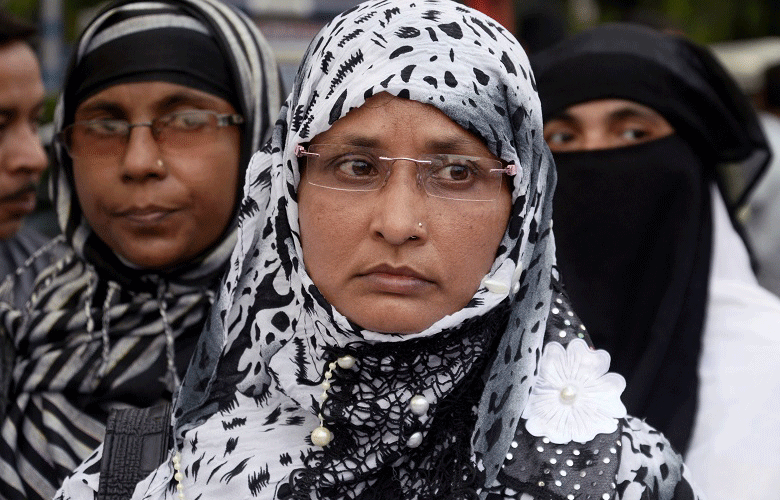Written By: Somrita Bhattacharyya
Paris, France
Photo Credit: Shutterstock.com
The issue is about a biological process, a very normal one, comes every month. But it seems it has the power to shudder the socio-political system of a country known to be the largest democracy of the world!
As we all know it already, the issue is not only a mere ‘men versus women’ issue. Yes, Mr. Prime Minister, please don’t play it wrong. When you say, ‘There are some temples in India, which have their own traditions, where men can’t go. And men don’t go…’ you miss a very crucial factor that it was not about barring all the women from entering the ‘pious’ temple of the God of celibacy in Kerala. The problem is with the women of a certain age-group, who go through this biological process called ‘menstruation’. But, this is not the single case of stigmatizing the most common characteristic of womanhood. We, the Indian women, face this exclusion most commonly in most of our families. And this exclusion is caused by the elderly women of the families in most of the cases. Patriarchy isn’t necessarily performed by the men all the time; it’s a very dearly cherished practice of a large percentage of women. Like many men can be the best of feminists.
Yes, one might ask, why it is so very important to enter a particular temple or to practice religious activities at home? Here comes the matter of enjoying one’s right as a human being, which is also an unmissable part of the constitution. So when I want to do something without causing any harm to anybody, I should have every right to perform that.
But, how can the women of the age-group of 10 to 50 cause a threat to God?
It’s already mentioned that most of the Indian Hindu families have a custom of excluding menstruating women from holy places, or even from religious practices performed at home, considering them ‘impure’ or ‘unclean’. The popular pilgrimage Sabarimala temple of Kerala had sent that exclusion to a different dimension by banning women of a certain age group. This age-old custom also had a declared reason. Hindu deity Ayyappa (believed to be the son of Lord Shiva and Mohini, the female Avatar of Lord Vishnu) is reputed for his vowed celibacy. Therefore, it’s strongly believed that the women of menstruating (read productive or childbearing) age could distract him.
In the year 1991, this banning became legal. And last year in September 2018, India’s Supreme Court finally declared to cancel that ban. Then in the wee hours of the morning of January 2, 2019, lawyer Bindu Ammini and Dalit activist Kanakdurga managed to secretly enter the ‘pious’ Sabarimala temple, the news broke out and nothing remained the same afterwards in the otherwise calm state of Kerala. Those two women were in their 40s, and hence their ‘impure’ approach to the 13th-century holy shrine sparked protests among the devotees across the state, costing one life, more than 100 injuries and almost 6000 police arrests. Since the legal cancellation of the ban, many women showed interest and made failed attempts to enter the temple, only causing more turbulence in the territory. Strong disagreement came from both men and women devotees and that made Supreme Court agree to another hearing after receiving more than 50 petitions to review the decision. Extreme right-wing Hindu nationalist groups continued to choreograph the mob-violence to put a huge pressure in the name of tradition.

Patriarchal hierarchy and violation of the basic rights of women never cease to be present in India, especially under the shield of traditional practice. So the controversy peers through the society irrespective of religious beliefs.
How did the Triple Talaq Ban come in?
In August 2017 India’s Supreme Court declared the instant triple talaq system ‘unconstitutional’ and ‘arbitrary’. This traditional practice of Muslim men uttering ‘Talaq’ just thrice and being able to divorce their wives had been declared ‘a criminal act’ by the BJP government a year later in 2018. Though this malpractice of disgracing Muslim women is not sanctioned by the Quran, and it’s not legal even in Muslim countries like Saudi Arabia or Pakistan, but protests poured in against the criminalization of the act. Many said the law could be misused. Many said that this move of criminalizing Triple Talaq is ‘a bad decision’ and ‘makes no sense’. Some even brought in the context of other religions, where wives are also being deserted and the men are being exempted of any punishment. AIMIM (All India Council of the Union of Muslims) president and Hyderabad MP Asaduddin Owaisi also contested the criminalization of triple talaq in parliament, and strangely once even criticizing Indian government for legalizing homosexuality and criminalizing triple talaq. To him, it was a perfect injustice!
But those who are opposing this move little are they understanding that irrespective of the social enforcement or execution of the law, this practice of instant triple talaq violates women’s rights and establishes patriarchal hierarchies. So this legal protection is necessary for so many ways. Finally, the law has been passed in Loksabha and the Indian government has re-issued the ordinance banning instant triple talaq.
What have the political parties said so far?
As always expected politicians from the ruling and the opposition parties and also from their religious wings are using both of these issues in their respective benefits. Indian Prime Minister Narendra Modi tried to put a convenient conclusion to this dual controversy, calling triple talaq a matter of gender equality and social justice and the banning of women in Sabarimala a traditional practice of religion. He brought this discussion to a whole new level of patriarchy by doubting the dissent by ‘a lady judge’ in the Supreme Court in this Sabarimala issue and said that her observations and suggestions should be read carefully.
While BJP is supporting Triple Talaq ban, and at the same time supporting the banning of women in Sabarimala temple, not trying to understand that these two are in fact the two sides of the same coin, the stance of other parties are also very shady. In the parliamentary session the Congress MPs have constantly supported the entry of women in Sabarimala, and thus criticized BJP’s one-eyed stance in this dual controversy of triple talaq and Sabarimala. CPI (M) general secretary Sitaram Yechury also questioned BJP’s only concern towards Triple Talaq ban and different opinion in Sabarimala issue. And then suddenly Rahul Gandhi, the president of All India Congress Committee (AICC), took a U-turn in the Sabarimala issue saying that ‘tradition needs to be protected’.
India is incredible, indeed!
When respecting a woman and offering her equal rights is concerned, India doesn’t fail to surprise at all! There is always this extreme concept of everything! On one hand, women are being worshipped as ‘Mother’ or ‘Goddess’, even cows are being given special treatments for being equivalent to ‘mothers’, on the other hand, women are being banned from certain acts for being able to menstruate which is actually the sole reason to give birth and be a mother. Even the most intelligent race of Indian subcontinent fails to comprehend that it’s better to leave simple things simple. There is no need to bring in radical imbalance to everything. Indian Constitution is complicated enough to establish equal rights everywhere, so some sane, sorted minds are all that the country needs to move forward!




